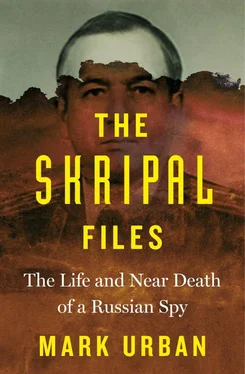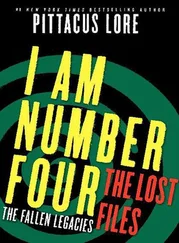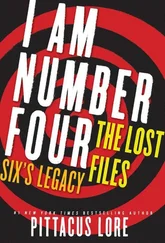All of this was manna to the Russian media, and prompted some defensive remarks from the British Ministry of Defence along the lines that Porton had never been tasked to make such a determination.
Contrary to the director’s public remarks, Porton might actually have come to such a conclusion, based on previous, clandestinely obtained samples of Novichok. If you have an example of the original, made in the Shikhany complex in southern Russia, you should in theory be able to match it by means of its molecular composition to those found in Salisbury. Why not do so, then?
The arguments against making any such determination public were both old and new, I was told. Traditionally anything obtained by clandestine methods, as German intelligence had in the 1990s, effectively bribing a scientist to bring over a sample, is going to be highly classified and therefore must remain under wraps. The more modern reason relates to information warfare: a revelation that the Salisbury Novichok could be matched to that made in Shikhany, but in the possession of a Western country, could soon have prompted Russian counter-claims that if Germany’s BND or the CIA had stolen the agent, then they equally well might have used it to frame Russia.
In my view the case that the UK could tie the Novichok to a specific Russian facility, but chooses not to for various reasons, is unproven. Though who knows, some new disclosure may emerge to change that. Certainly, I’ve heard it said that the determination that Russia had produced the Novichok used in Salisbury involved highly sensitive intelligence material and that this proof while not made public was, in broad terms, shared with allies when the question of expelling diplomats was being discussed.
The information battle was though simply part of the bigger arc of Anglo-Russian relations, and everybody knew that the argument could not be maintained long term at the same pitch. In mid-April a Foreign Office official told me he thought the Russians were seeking to de-escalate the crisis. Certainly the British were. But he had a point about the Russians also: taking one crude metric, tweets by the Russian Embassy in London, there were one hundred and twelve about the Skripal affair in the first half of April, thirty-five in the second. In May there were a third of the number of tweets about the crisis than there had been in April. Of course during this time other issues were coming to preoccupy the social-media person at the embassy: the chlorine attack in Douma near Damascus on 7 April triggered Western missile strikes on Syrian government installations, a move loudly opposed by Russia. And on a more upbeat note, by May the Russians were starting their media build-up to the football World Cup.
Having engaged the OPCW to such advantage initially, the British took their foot off the pedal. Chemical-warfare experts have told me of their surprise that the UK did not swiftly move to invoke ‘clarification’ procedures under Article 9 of the Chemical Weapons Convention. This would have allowed them to ask the Russians certain questions formally: Where is your single facility permitted under the CWC? Has it produced any Novichok-type agents in recent years? Has it made the A234-type agent?
Instead the UK campaigned diplomatically on the Syrian chemical-weapons issue, and at a special session of the OPCW in The Hague in June 2018 pushed through rules to increase the organization’s ability to fact-find and attribute blame. Russia tried unsuccessfully to bar these changes. Although the Skripal affair was helpful in convincing some nations to vote for them, it formed a minor part of the British diplomacy at this event.
So while the Salisbury poisoning produced a far greater reaction – whether measured by diplomats expelled or social-media impressions generated – than that of Litvinenko in 2006, there were certain realities that were bound to reassert themselves. The Anglo-Russian relationship still involves so many businesses, families, interactions, and exchanges that neither side can live with a return to Cold War-style restrictions, still less a complete severance of ties. And as that applied to nations so it did to the Skripals.
Yulia had until 3 March assumed her future lay in Russia. The trip to Salisbury was only meant to last a fortnight, after all. While she had spent years living and working in the UK, she was more comfortable within her own culture, and having met Stepan, was happy there. Recovering from the attack, as the April days dragged into May, she found herself working on a statement that would be issued to the wider world. The police were still uneasy about her giving an interview – questions about how much of 4 March she remembered or who she blamed for the attack might be considered prejudicial if a perpetrator was ever put on trial. But she had things she wanted to say, and the authorities knew that this was also a way of addressing some of the wilder rumours and Kremlin counter-narratives.
She was helped in some of the phrasing of the message that was eventually recorded on 23 May in woodland near London by a team from Reuters news agency. But in order to put beyond doubt that these were her own thoughts, she had also prepared a handwritten, signed version, rather in the manner of a police statement, and of course delivered her message on camera.
Yulia expressed gratitude to Salisbury Hospital but noted also that ‘the clinical treatment was invasive, painful, and depressing’. Perhaps the most poignant part of it concerns her re-evaluation of her own situation since the attack and its complexities.
My life has been turned upside down as I try to come to terms with the devastating changes thrust upon me both physically and emotionally. I take one day at a time and want to help care for my dad till his full recovery. In the longer term I hope to return home to my country.
And in that last statement her hope for a future relationship with Russia was clear. As the summer wore on it emerged that she had been in touch with the builders renovating her flat in Moscow, that a friend had come over from Russia in June to visit her, and that her relationship with her cousin Viktoria had gone from bad to worse. In a difficult phone call (recorded by Viktoria and given to the media early in July), Yulia insisted she was free to come home at a time of her own choosing and that she would have done so already but for her cousin’s appearances on Russian media.
At times Sergei had longed for home too but had been forced by circumstance to accept perpetual exile. Recovering as he was in hospital from the poisoning he couldn’t see any way he would ever return. But his daughter embodied the hope for something better and brighter, for a future despite everything.
22
THE LONG ROAD TO RECOVERY
In Salisbury Hospital doctors took Sergei Skripal off the critical list on 9 April. It happened just before Yulia’s discharge, and it reflected the medical assessment that he could breathe without the help of a respirator just over one month after the attack. The gradual ‘wakening’, through careful reduction of sedation, had brought him back to consciousness.
Their battle, we remember, had been in two main phases. Until they were taken off the critical list it was a matter of survival. In the weeks that followed it was about recovery, most importantly restarting the body’s production of acetylcholinesterase so that its muscles and organs got working again properly. Experts thought that might take months, but it happened much faster.
When we were filming at the hospital in May 2018, Stephen Jukes, one of the intensive-care consultants, told us candidly, ‘We were exceptionally surprised, a pleasant surprise to see the recovery happen at such a pace when it did begin to happen that I can’t easily explain.’ Discussing it with his senior colleague, Dr Duncan Murray, he did however speculate about a new therapy that was tried on the Skripals at the suggestion of Porton Down.
Читать дальше












